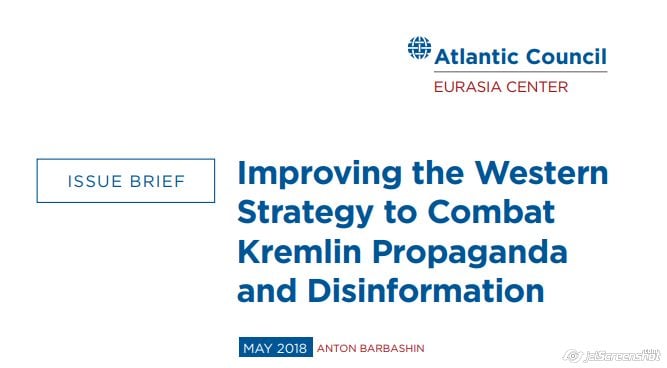By Anton Barbashin, for Atlantic Counsil
Since Putin’s annexation of Crimea and military aggression in Donbas—and especially since the 2016 US presidential election—the spread of Kremlin propaganda and disinformation has become a dominant subject of discussion and debate in the West. Academic research, investigative journalism, government inquiries, and NGO activities have drawn back the curtain on the Kremlin’s efforts to meddle in and distort the Western information space.
This work has created widespread awareness of the issue in NATO countries and Russia’s immediate neighbors to the west and south, but difficult questions remain regarding appropriate countermeasures. For example: How can these countries target Russian disinformation and propaganda without dismissing fair criticisms of Western structures of government? What is an appropriate response that also preserves the freedoms that distinguish the West from authoritarian states? How can countries in Central and Eastern Europe strengthen democratic values when their societies are the most vulnerable to disinformation campaigns?
By Anton Barbashin, for Atlantic Counsil





